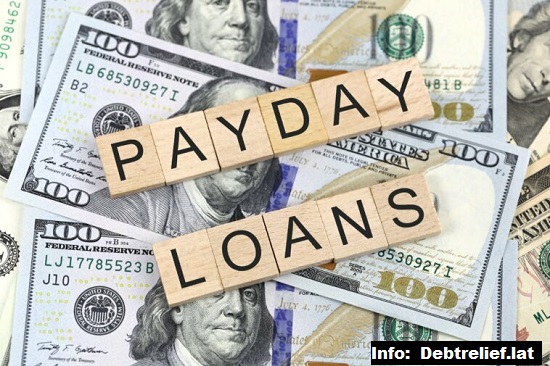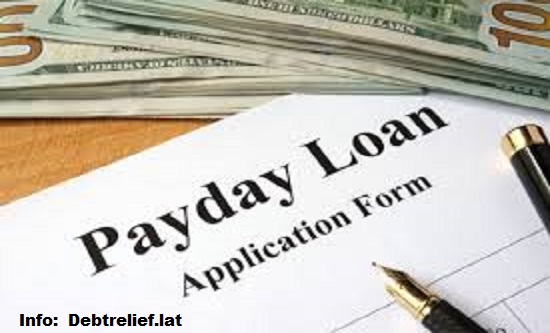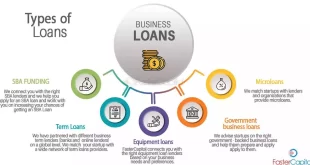Welcome to our comprehensive guide on payday loans in the United States. In this article, we will delve into the world of payday loans, their purpose, how they work, and the impact they have on individuals and society as a whole. Whether you’re considering taking out a payday loan or simply curious about this borrowing option, this article will provide you with all the essential information you need to know.
Payday Loans
Payday loans are short-term, high-interest loans that are typically granted to individuals who need immediate access to cash. These loans are designed to bridge the gap between paychecks when unexpected expenses arise. In the United States, payday loans are typically for small amounts, often ranging from $100 to $500, and are intended to be repaid on the borrower’s next payday.
Due to their accessibility and simplicity, payday loans have gained popularity in recent years. However, it is essential to fully understand the responsibilities and potential consequences associated with these loans before deciding to take one out.

How do Payday Loans Work?
The process of obtaining a payday loan is relatively straightforward. Here’s a step-by-step guide:
- Application: To apply for a payday loan, you typically need to provide proof of income, identification, and a valid checking account. Some lenders may also require a post-dated check as collateral.
- Approval: Once you have submitted your application, the lender will assess your eligibility based on the provided information. If approved, you will receive the loan amount in cash, as a check, or directly deposited into your bank account.
- Repayment: The repayment terms vary depending on the lender, but generally, you will be required to repay the loan in full, along with the associated fees and interest, by your next payday. Alternatively, some lenders may offer extended repayment plans.
It is important to note that payday loans often come with high interest rates and fees, making them a costly borrowing option. Failure to repay the loan on time can result in additional fees and negative consequences for your credit history.
KEY Action items
- Payday advances are present moment, extremely expensive loans accessible to buyers.
- Payday credits are normally founded on the amount you procure, and you ordinarily need to give a compensation stub while applying for one.
- Payday advances are not accessible in all states. Sixteen states — Arizona, Arkansas, Colorado, Connecticut,
- Georgia, Maryland, Massachusetts, Montana, New Hampshire, New Jersey, New York, North Carolina,
- Pennsylvania, South Dakota, Vermont, and West Virginia — and the Area of Columbia prohibit payday credits of any sort.
- Various regulations have been set up throughout the years to direct the high charges and financing costs of payday credits.
The Pros and Cons of Payday Loans
Pros
1. Accessibility: Payday loans provide quick and easy access to cash, especially for individuals who may not qualify for traditional bank loans.
2. No Credit Check: Unlike traditional loans, payday lenders typically do not perform extensive credit checks, making them accessible to individuals with less-than-perfect credit scores.
3. Convenience: The application process is simple, and funds are often available within a short period, sometimes even within the same day.
Cons
1. High Interest Rates: Payday loans usually come with significantly higher interest rates compared to other forms of borrowing. This can result in a cycle of debt if borrowers are unable to repay the loan in full by the due date.
2. Short Repayment Terms: The short repayment term of payday loans, often one to two weeks, can put borrowers under financial pressure, leading to a need for additional borrowing.
3. Potential for Debt Cycle: Due to the high interest rates and short repayment terms, some borrowers may find themselves caught in a cycle of borrowing and struggling to break free from it.
The Impact of Payday Loans
While payday loans can provide immediate relief to individuals facing financial emergencies, they also raise concerns and have a significant impact on borrowers and communities.
Firstly, payday loans can contribute to financial instability for borrowers. The high interest rates and short repayment terms can make it challenging to repay the loan, often resulting in borrowers taking out additional loans to cover the previous one. This cycle can lead to a long-term debt burden and financial stress.
Secondly, payday loan companies tend to target low-income individuals and communities, which can perpetuate existing socioeconomic inequalities. The high cost of borrowing and the potential for debt can push vulnerable individuals further into financial distress.
Additionally, payday loans can impact local economies. Research has shown that the fees and interest paid on payday loans act as a drain on consumers’ disposable income, reducing their purchasing power and limiting their ability to contribute to local businesses and communities.
Regulations and Alternatives
To protect consumers from predatory lending practices, many states in the United States have implemented regulations on payday loans. These regulations aim to limit interest rates, restrict the number of loans a borrower can take out, and provide repayment options.
Furthermore, there are alternatives to payday loans that individuals can explore when in need of emergency funds. These alternatives include:
1. Personal Installment Loans: These loans typically allow for larger loan amounts and longer repayment terms, making them more manageable for borrowers.
2. Credit Union Loans: Credit unions often offer small-dollar loans with more favorable terms compared to traditional payday loans.
3. Emergency Assistance Programs: Some nonprofit organizations and local communities provide emergency financial assistance to help individuals in times of crisis.
Payday Loan Consequences
Payday loans can be a tempting solution for individuals facing financial emergencies. However, they come with significant risks and should be approached with caution. Before considering a payday loan, it is essential to fully understand the terms, fees, and potential consequences.
Exploring alternative borrowing options and building an emergency savings fund can provide more stable and sustainable solutions in the long run. By making informed financial decisions, individuals can avoid falling into the cycle of debt often associated with payday loans.
We hope this article has provided you with valuable insights into payday loans in the United States. Remember, financial well-being is crucial, and being aware of various borrowing options is key to making the right decisions for your financial future.

Are Payday Credits Fixed or Variable?
Payday credits are normally intended to be taken care of in one singular amount installment when you get your check. Along these lines, the financing cost on these advances is fixed. As a matter of fact, numerous payday loan specialists don’t communicate their charges as a financing cost, yet they rather charge a decent level expense that can be somewhere in the range of $10 to $30 per $100 acquired.
Is a Payday Credit Got or Unstable?
Most payday credits are unstable. This implies that you don’t need to give the moneylender any security or get against an important thing as you do in a pawn shop.
All things considered, the loan specialist will typically ask you for authorization to electronically take cash from your bank, credit association, or pre-loaded card account. On the other hand, the bank might request that you compose a check for the reimbursement sum, which the moneylender will cash when the credit is expected. Under government regulation, moneylenders can’t condition a payday credit on getting approval from the purchaser for “preauthorized” (repeating) electronic asset moves.
How Long Do Payday Advances Stay in the Framework?
The records of conventional advances might be saved for six to 10 years by credit departments — the organizations that ascertain FICO assessments — which thus might influence your capacity to acquire cash from here on out. Payday moneylenders don’t as a rule report to the credit departments, even in the event of late reimbursements; be that as it may, the payday advance might be recorded whenever it is passed to the gatherers after the loan specialist sells the obligations.
On the off chance that you reimburse your payday advance on time, your FICO assessment ought not be impacted. Then again, in the event that you default on your credit and your obligation is put in the possession of an assortment organization, then, at that point, you will see a plunge in your score.
Might Payday at any point Advance Obligation Be Excused?
Practically speaking, it’s exceptionally interesting for payday credit obligation to be discounted. This is on the grounds that payday moneylenders make critical aggregates from the premium that they charge on these advances.
This implies that you ought to attempt to take care of payday advances in a hurry. In the event that you can’t take care of a payday credit, the record might be shipped off an assortment organization, which will seek after you for the cash and premium that you owe. This isn’t just terrible yet in addition can add cash to your general obligation — and it will harm your credit.
Could You at any Point Get a Payday Credit Without a Financial Balance?
Indeed. Having a ledger isn’t generally expected to get cash, yet loan specialists that don’t need it for the most part charge exorbitant financing costs. This incorporates numerous payday moneylenders. Payday moneylenders might request a financial balance, however now and then a pre-loaded card record might be sufficient to qualify.
Since these advances cost so a lot and might be challenging to reimburse, keeping away from them is quite often best. On the off chance that you can’t take care of the credit speedily, charges can add up, prompting an obligation trap that is difficult to escape. Along these lines, you ought to possibly take out a payday credit assuming you are certain beyond a shadow of a doubt that you can repay it.
The Primary Concern
Payday credits are intended to cover momentary costs, and they can be taken out without security or even a financial balance. The catch is that these advances charge exceptionally high expenses and financing costs.
Borrowers ought to be careful about these credits. They might considered savage loan, as they have very exorbitant interest, don’t consider a borrower’s capacity to reimburse, and have stowed away arrangements that charge borrowers added expenses. Subsequently, they can make an obligation snare for customers. In the event that you’re thinking about a payday advance, you might need to initially investigate elective crisis credits for terrible credit.


